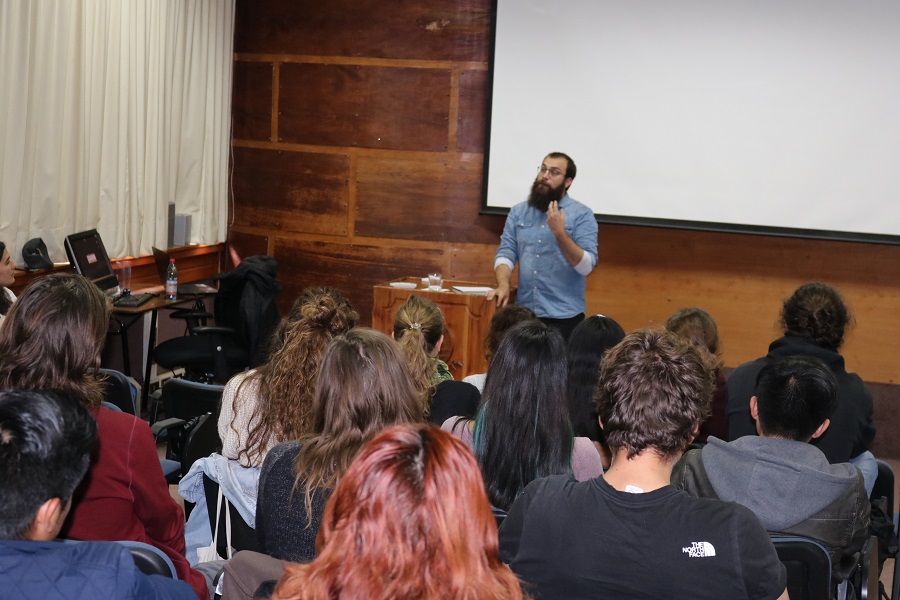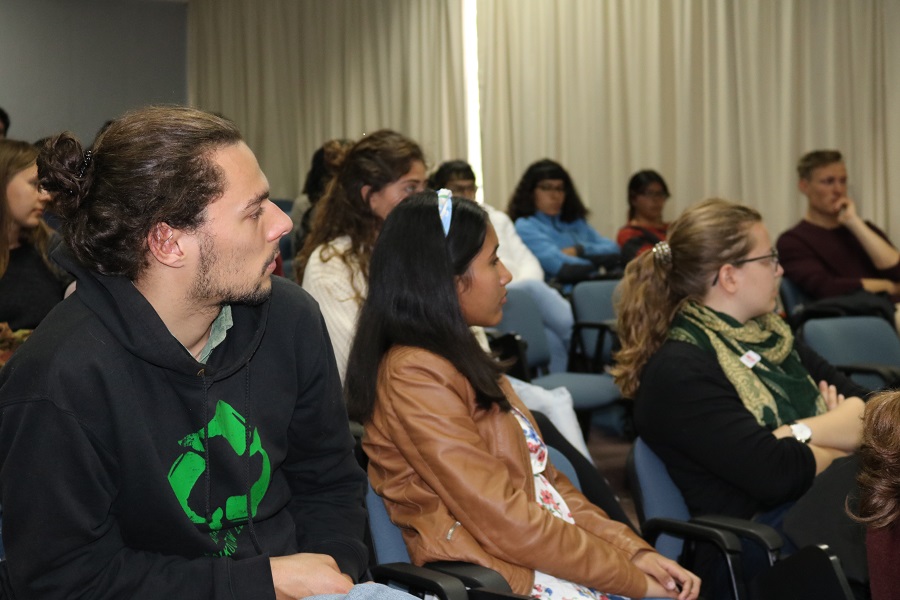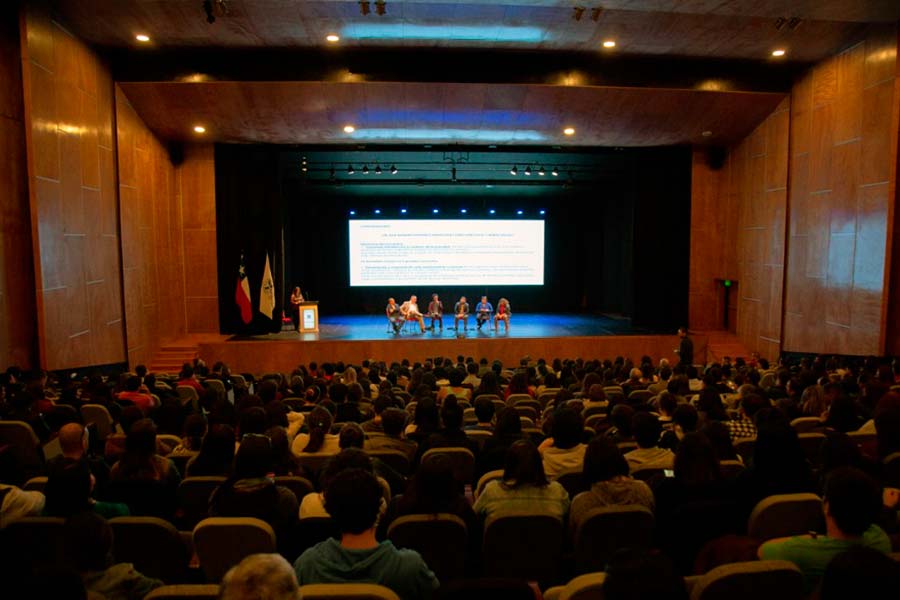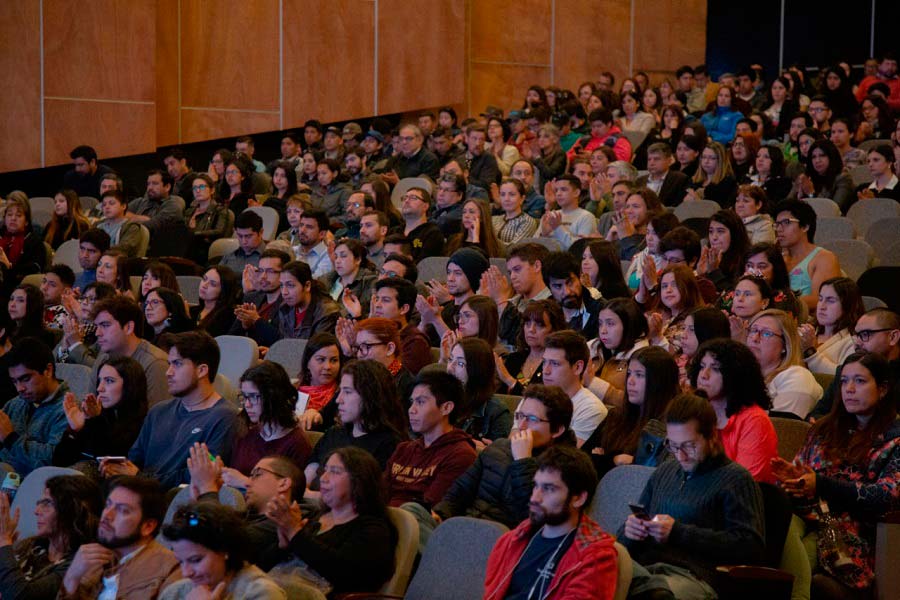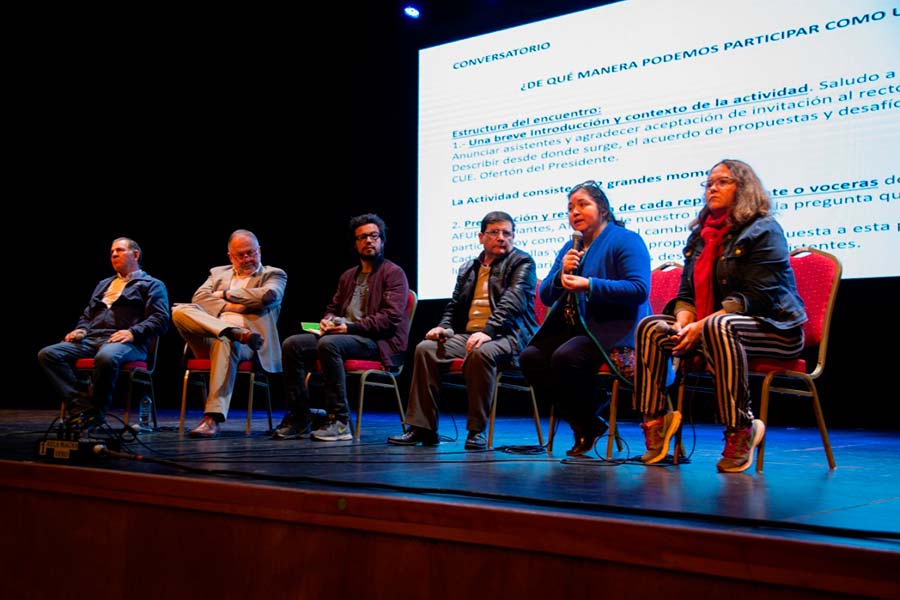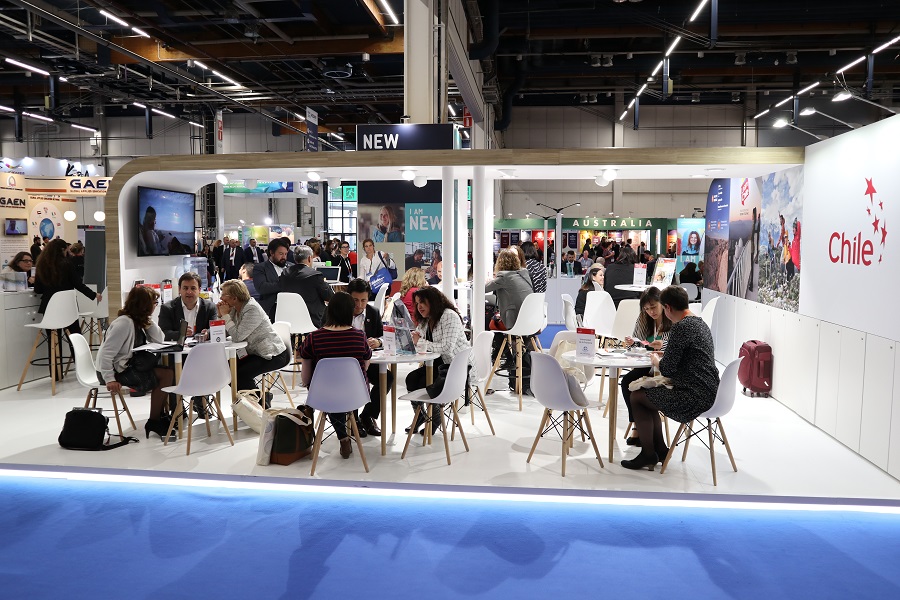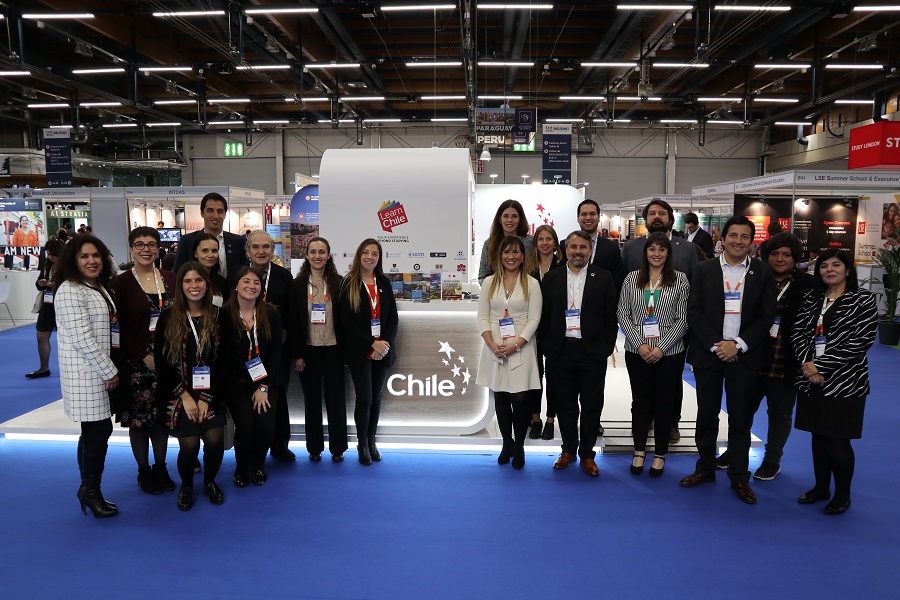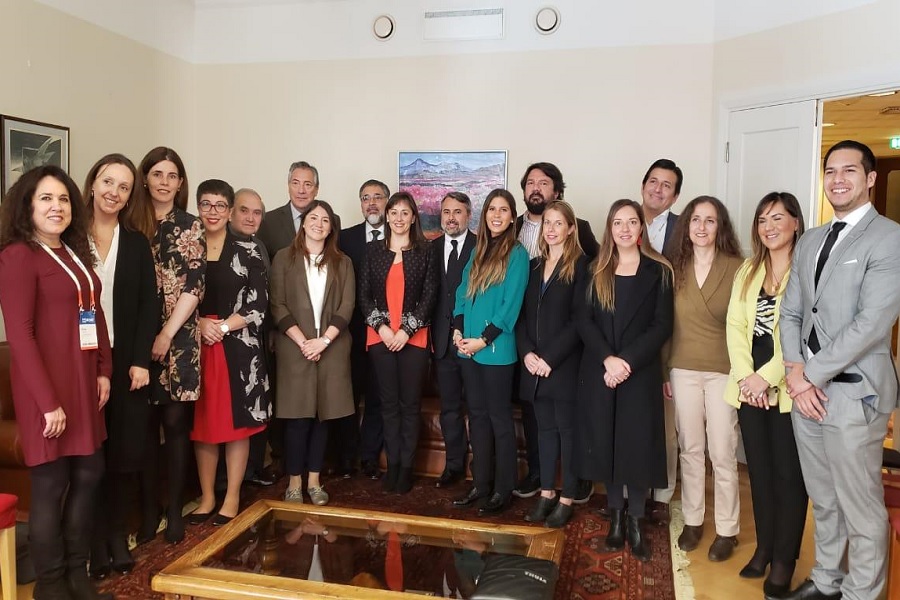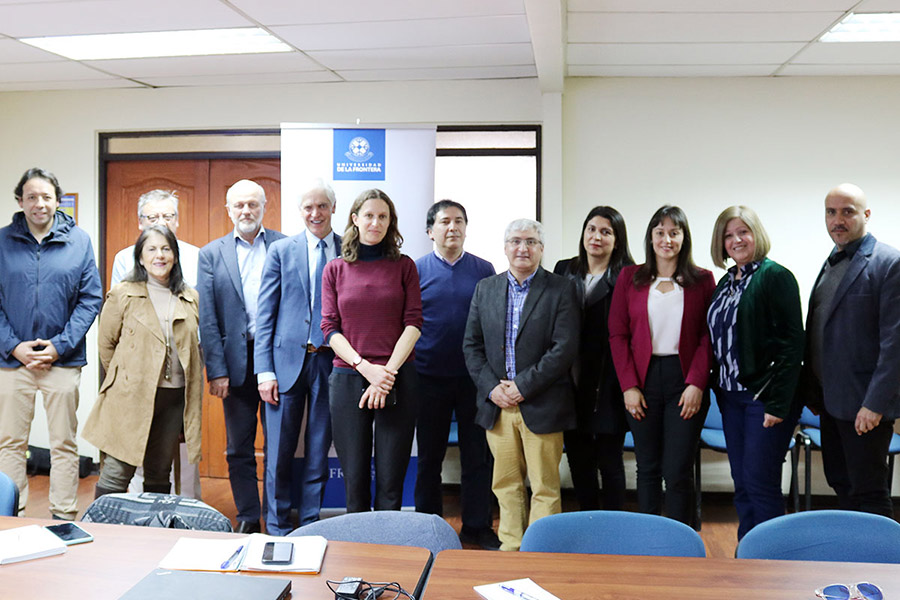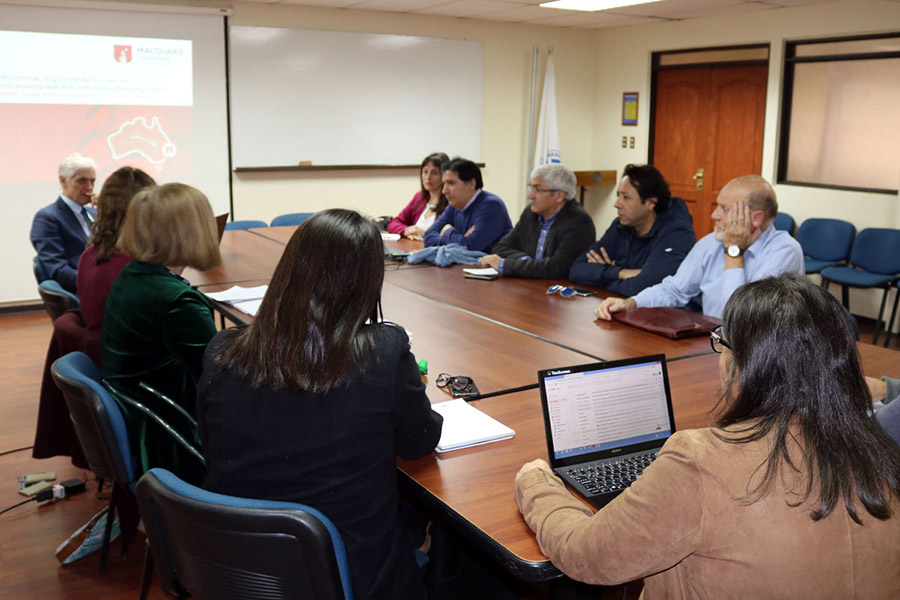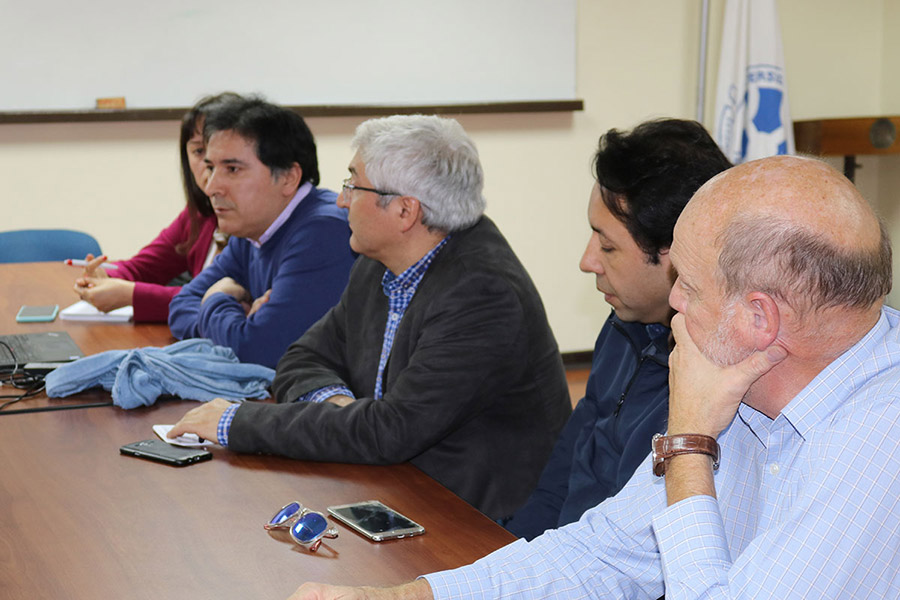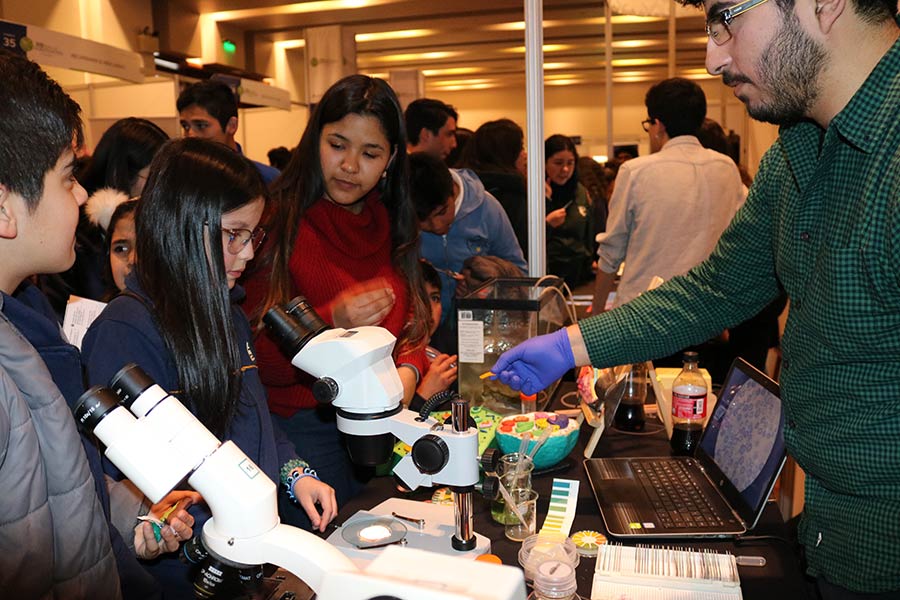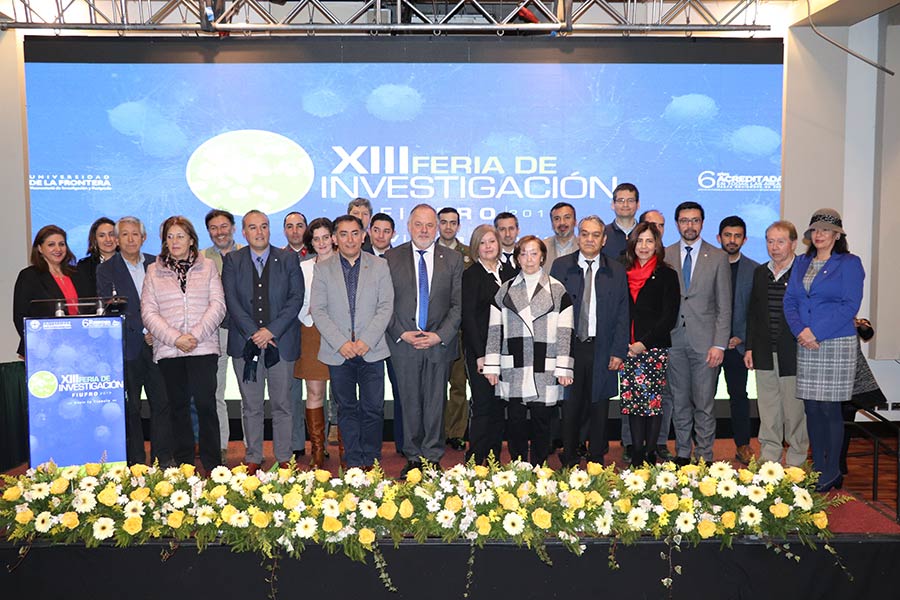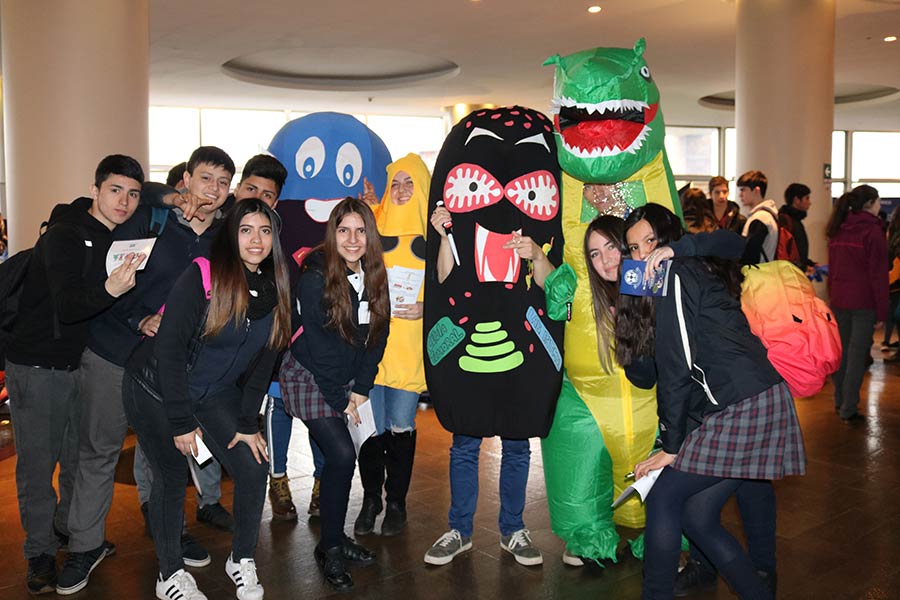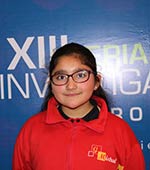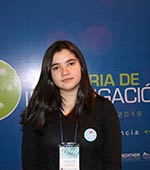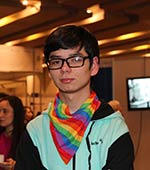|
The Universidad de La Frontera is seeking a permanent dialogue. In this context, the foreign students who are currently studying at the university were invited to an informative meeting with posterior conversations about the current situation in Chile. |
The purpose of this meeting, organized by the International Affairs Office and the Office for National and International Student Mobility of the Universidad de La Frontera (UFRO), was to understand the political and social episodes that have taken place in Chile during the last decades and that have originated the current public discontent and demonstrations all over the country. The psychologist Diego Espinoza and Claudia Mercado, a student of the doctorate in social sciences, were in charge of the presentation called “Social outburst in Chile” and contextualized the aspects with which the public discontent started, specifically the demands that involve the pension system, low and unjust salaries, access to health care services and coverage, the right of quality education, access to housing, the increase in basic services costs and the general rise in the costs of living, amongst others. The main purpose of this activity was, according to the speakers, to help the foreign students to understand what is happening and why this social explosion is taking place. “This is not just discontent as a phenomenon of crime and violence. It has a background that lies 40 years in the past, with processes that originated in the dictatorship,” the psychologist Diego Espinoza explained. It is a difficult task to condense the whole background information in less than two hours, but according to Claudia Mercado, the social scientist and student of the doctorate in social sciences, “it is very important to ask ourselves and share our thoughts about what Chile is at this moment, what country we are living in and what this public discontent is about. And in this context, we must consider antecedents that allow others to understand that we are facing an institutionalism and a state that was created at a specific moment in history and that is required to undergo structural changes.” At the end of the presentation, the students from Germany, Argentina, Brazil, Belgium, Bolivia, Colombia, Spain, the USA, France, the Netherlands, Mexico and Poland who joined the UFRO this year, were able to ask questions and to express their concerns. According to Consuelo Sanchez, who is in charge of the National and International Student Mobility Office of the Universidad de La Frontera, the institutional purpose these days has been to create the required spaces of dialogue and reflection for being able to maintain an appropriate climate. “We wanted to provide a space of dialogue, to give them the opportunity to get to know the background of what is happening and to convey a sense of calm; but also to get to know their personal vision, and their doubts and questions regarding their academic student exchange.”
 Written by: UFRO Communications Office Written by: UFRO Communications OfficeThis email address is being protected from spambots. You need JavaScript enabled to view it. |
|
What is the role of the Universidad de La Frontera in social change and how can it participate? This was one of the main questions asked at the assembly organized by AGA, AFUF, the students and ATMA, at which also the university president, Dr. Eduardo Hebel, was present. |
At a special assembly, the Universidad de La Frontera (UFRO) brought the university community together at the Aula Magna to analyze the current situation in Chile. The number of participants was high, with representatives of the different units and organizations, amongst others. What is the role of the Universidad de La Frontera in social change and how can it participate? This was one of the main questions asked at the assembly organized by the Gremial Association of Academics (AGA), the Association of Public Servants (AFUF), the students and the Association of Self-Convened Women (ATMA), at which also the university president, Dr. Eduardo Hebel, was present. Through a panel forum, each one of the representatives of the different organizations presented his or her proposal regarding the main question of the assembly and shared their messages of reflection and analysis of the events occurred in Chile recently. More than 700 people attended the assembly that was open to the university community. Among them were students, employees and academics who all provided their ideas and reflections in order to build a better university and society. One of the requests during the assembly was to organize formal and permanent spaces for meeting with social organizations and the local community. It is the active role of the Center for Studies and the Promotion of Human Rights at the UFRO and the Observatory of Gender Equity and Equity for Mapuche People to create a registry of the victims of repression in the Araucania Region and to establish a unit for support in situations of crisis.
Escrito por: UFRO Communications Office
|
|
The EAIE is the most important International Higher Education Conference and Exhibition in Europe, organised by the European Association for International Education. This year, it took place in Helsinki, Finland. During three days, the UFRO and other universities from different countries all over the world had the opportunity to show their new ways of academic cooperation, achieving more than 250 meetings. |
This is the sixth time that Chile had a national stand to display its educational offer at this International Higher Education Exhibition, the most popular one in Europe, which took place in Helsinki, Finland. Fourteen institutions for higher education of Learn Chile attended the event in representation of Chile, including the Universidad de La Frontera (UFRO), which managed to sign cooperation agreements with universities in several countries. For the students, safety, beauty and the diversity of landscapes are decisive factors when choosing a destination to study abroad. Europe is the continent where most exchange students come from, with about 40% of the total number of foreign students (almost 4,000 per year). Most of them come from Spain (12.4%), followed by France (11.4%) and Germany (6.5%). They mostly participate in exchange programs, special courses or spanish courses. Dr. Pamela Leal, who is in charge of Dissemination and International Contacts, pointed out that the EAIE is an important platform for visibility. “During this version of the event, we had more than twenty meetings with institutions from Europe, Asia and Latin America. Some examples are the WSB University in Poznan (Poland), Haute Ecole Léonard De Vinci (France), Global Education Park (Finland), BSDU Jaipur (India), Kanagawa University (Japan), Ghent University (Belgium), Banat University of Agricultural Sciences and Veterinary Medicine (Romania), and so on,” she commented. These are only some of the partners interested in doing some kind of cooperation with the UFRO. In this context, Dr. Leal added: “The issues addressed were student and academic mobility through the Erasmus+ program, and joint research projects in the fields of agriculture, business, engineering and social sciences. In the field of postgraduate studies, the main interest focused on developing co-tutorship agreements and postdoctoral exchange. International relations are based on trust, mutual cooperative work, bidirectionality and sustainable cooperation. Therefore, it is extremely important to attend this kind of events.” INTERNATIONAL RELATIONS During the EAIE, representatives of Spanish and French educational institutions scheduled the most meetings with representatives of the Chilean peers, although relatively new markets, such as Finland, Turkey and India, also were highly interested. Roberto Ubilla Quevedo, the Ambassador of Chile in Finland and Estonia, also received the representatives of the Chilean universities that attended the event at the premises of the Embassy of Chile in Finland. The objective of this meeting was to develop networking activities in order to establish ties of exchange and cooperation. FINLAND AS A REFERENCE The Finnish education system is known to be the best in the western world. During EAIE, the Conference on Higher Education in Finland took place, where the main characteristics of the Finnish education system were presented. One of them is that most undergraduate programs are taught in English, as well as all postgraduate programs. Anita Lehikoinen of the Finnish Ministry of Education commented that there is a program of the Finnish government which has the objective that, until 2030, 50% of the young adults in Finland achieve a university degree. Another result she presented was that more than 50% of the investment in research and development (R&D) in this nordic country comes from the industry (most funds come from the Nokia Foundation). Since the EAIE was held in Finland, great student exchange opportunities opened up for the Chilean delegation. An instance that began to take shape during a reception by Mr. Roberto Ubilla, the Ambassador of Chile in Finland, at his residence, which was also attended by authorities from the Finnish Ministry of Education and representatives of universities from all over Europe in order to welcome the delegation of Learn Chile. “During the meetings we saw how Chile consolidates itself as the starting point for European universities to work in the Southern Cone. European students enrich the academic mobility programs developed in Chile and offer the possibility for Chilean students and academics to establish academic, social and research networks that can be developed in the medium and long term, with all the national benefits that come with it," Marcos Avilez, the director of Learn Chile, pointed out. PARTICIPATING CHILEAN UNIVERSITIES 1. Duoc UC
Written by: UFRO Communications Office
|
|
This alliance will allow to strengthen a productive relationship of great importance with KU Leuven, one of the oldest universities in Europe, and a young institution in Oceania, the Macquarie University in Australia. |
The partnership between the Universidad de La Frontera (UFRO) in Chile and KU Leuven in Belgium is very strong and based on mutual trust and collaboration. They are working together for more than a decade and the link is each time stronger and more productive in terms of research, double graduation and joint publications. Now, the Macquarie University in Australia is also joining this link, converting it into an interesting trilateral partnership with great international impact. An auspicious meeting was recently held within the framework of the conversations about the creation of an international research institute. Therefore, they came together to work on the issue. In representation of the UFRO the academics Jorge Farías, Gabriela Briceño, Jaime Garrido and Francisco Matus, the nucleus directors Marianela Denegri and María de la Luz Mora, and the director of the Institutional Analysis and Development Office, Ricardo Herrera, were present, as well as Dr. Lorena Vieli, the director of the International Affairs Office, and Dr. Pamela Leal, the person in charge of International Contacts. On this occasion, Dr. Sakki Pretorious of Macquarie University in Australia presented the main areas of institutional development and the reasons for his visit: “I met Dr. Adison Altamirano a few years ago and we are very aspirational, very hungry to change things, and very entrepreneurial. The purpose of my visit was to meet more people, so that we can start to build a relationship and that I can start to explain what are the things we are doing and interested in. It was a very interesting brainstorming between the participants.” Dr. Pretorius explained: “Within a year, we will have identified the areas we want to collaborate on, also with KU Leuven in Belgium, which is a very good old university, together with two young universities that are very aspirational. If we put these things together we can start our collaboration as a virtual research institute between the three universities, on specific areas, with specific aims. We can put skills together and complement one another, so that we can exchange students, phd students and academics.” Dr. Koppin of KU Leuven, who plays an important role in this alliance, commented: “This trilateral agreement seeks to strengthen the interest of each of the universities. But it is not that easy, because there are only few initiatives of this kind in the world. However, our idea is to overcome the differences and to come together regarding the common issues.” Three institutions from Australia, Belgium and Chile with three different points of view and three different cultures – it is an interesting challenge that could multiply their productivity. In this context, Dr. Koppin explained that the geographical location of the UFRO is unique, the technology of Macquarie University is the most advanced and the knowledge of KU Leuven is indispensible. Dr. Lorena Vieli, the director of the UFRO International Affairs Office, pointed out: “This link will become an interesting scenario for research, since it creates great opportunities for joint development. We are talking about a possible synergistic research center or institute between universities on three continents.” The director added: “It will encourage the academics, undergraduate and graduate students, and researchers to participate in mobility programs, and also strengthen the fields of research, obtaining even more positive results. We have a lot to offer at UFRO.”
Written by: UFRO Communications Office
|





